Collocations are combinations of words that frequently occur together, creating natural-sounding expressions. Understanding and using collocations is essential for achieving fluency in any language. In English, the verb “go” forms a multitude of collocations that can significantly enhance your speaking and writing skills. This guide will explore 30 common collocations with go, providing definitions, phonetic transcriptions, and practical examples.
Table of Contents
- Enhance Your Vocabulary 💸 30 Must-know Collocations with Go
- Why Focus on “Go”?
- #1. Go Abroad 🌍
- #2. Go Bad 🍞
- #3. Go Bald 🧑🦲
- #4. Go Bankrupt 💸
- #5. Go Blind 🕶️
- #6. Go Crazy 🤪
- #7. Go Dark 🌑
- #8. Go Deaf 👂
- #9. Go Green 🌱
- #10. Go Home 🏠
- #11. Go Mad 😡
- #12. Go Missing 🕵️♂️
- #13. Go On 📅
- #14. Go Online 🌐
- #15. Go Out 🌃
- #16. Go Public 📢
- #17. Go Quiet 🤫
- #18. Go Red 😳
- #19. Go Shopping 🛍️
- #20. Go Sick 🤒
- #21. Go Slow 🐢
- #22. Go Smoothly 👍
- #23. Go Through 📜
- #24. Go Together 💑
- #25. Go To Bed 🛏️
- #26. Go To College 🎓
- #27. Go To Court ⚖️
- #28. Go To Jail 🚔
- #29. Go To Work 🏢
- #30. Go Wild 🦁
- Conclusion
Enhance Your Vocabulary 💸 30 Must-know Collocations with Go
Whether you’re an English learner looking to expand your vocabulary or a seasoned speaker aiming to polish your language skills, these collocations will be a valuable addition to your linguistic toolkit. Dive into this comprehensive list to discover how to use these collocations effectively and naturally in various contexts.
Why Focus on “Go”?
The verb “go” is versatile and used in various contexts, making it a crucial word to master in English. By familiarizing yourself with its common collocations, you can expand your vocabulary and enhance your ability to express yourself clearly and accurately.
#1. Go Abroad 🌍
Definition: To travel to a foreign country.
Phonetic Transcription: /ɡoʊ əˈbrɔːd/
Examples:
- “Every summer, we go abroad to explore new cultures.”
- “She decided to go abroad for her higher studies.”
#2. Go Bad 🍞
Definition: To become spoiled or rotten, especially food.
Phonetic Transcription: /ɡoʊ bæd/
Examples:
- “The milk will go bad if you leave it out of the fridge.”
- “Those apples are starting to go bad.”
#3. Go Bald 🧑🦲
Definition: To lose hair and become bald.
Phonetic Transcription: /ɡoʊ bɔːld/
Examples:
- “He started to go bald in his early thirties.”
- “Many men go bald as they age.”
#4. Go Bankrupt 💸
Definition: To become unable to pay debts and financially ruined.
Phonetic Transcription: /ɡoʊ ˈbæŋkrʌpt/
Examples:
- “The company went bankrupt after a series of bad investments.”
- “If you don’t manage your finances well, you could go bankrupt.”
#5. Go Blind 🕶️
Definition: To lose the ability to see.
Phonetic Transcription: /ɡoʊ blaɪnd/
Examples:
- “He feared he would go blind after the accident.”
- “Some diseases can cause people to go blind.”
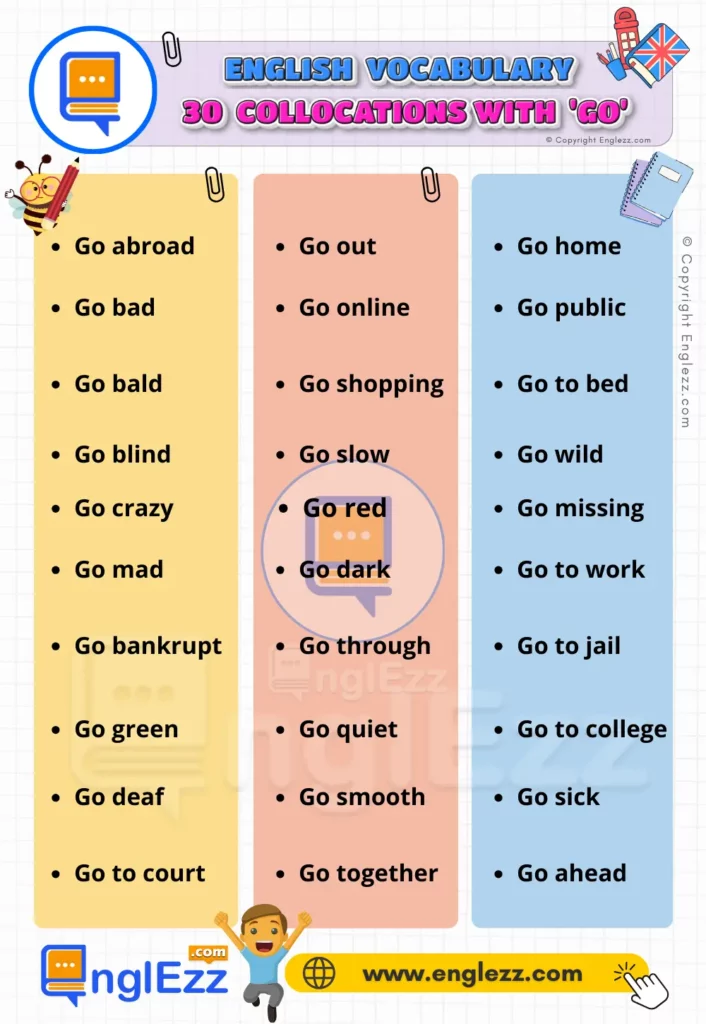
#6. Go Crazy 🤪
Definition: To become very excited or lose control emotionally.
Phonetic Transcription: /ɡoʊ ˈkreɪzi/
Examples:
- “The crowd went crazy when the band started playing.”
- “She’ll go crazy if she hears about the surprise party.”
#7. Go Dark 🌑
Definition: To stop all communications, especially online.
Phonetic Transcription: /ɡoʊ dɑrk/
Examples:
- “The company went dark after the data breach.”
- “He decided to go dark on social media for a while.”
#8. Go Deaf 👂
Definition: To lose the ability to hear.
Phonetic Transcription: /ɡoʊ dɛf/
Examples:
- “Listening to loud music constantly can make you go deaf.”
- “She went deaf in one ear after the accident.”
#9. Go Green 🌱
Definition: To adopt environmentally friendly practices.
Phonetic Transcription: /ɡoʊ ɡriːn/
Examples:
- “Many companies are trying to go green to help the environment.”
- “They decided to go green by installing solar panels.”
#10. Go Home 🏠
Definition: To return to one’s place of residence.
Phonetic Transcription: /ɡoʊ hoʊm/
Examples:
- “After the long day, she was ready to go home.”
- We can go home once the meeting is over.
#11. Go Mad 😡
Definition: To become very angry or insane.
Phonetic Transcription: /ɡoʊ mæd/
Examples:
- “He’ll go mad if he finds out what happened.”
- “The stress of the job is making her go mad.”
#12. Go Missing 🕵️♂️
Definition: To disappear without explanation.
Phonetic Transcription: /ɡoʊ ˈmɪsɪŋ/
Examples:
- “Several hikers went missing in the mountains.”
- “Her cat went missing last week.”
#13. Go On 📅
Definition: To continue or proceed.
Phonetic Transcription: /ɡoʊ ɑn/
Examples:
- “The show must go on, despite the technical difficulties.”
- “Life goes on, even after a tragedy.”
#14. Go Online 🌐
Definition: To connect to the internet.
Phonetic Transcription: /ɡoʊ ˈɒnˌlaɪn/
Examples:
- She needs to go online to check her email.
- More businesses are going online to reach a wider audience.
#15. Go Out 🌃
Definition: To leave a place to go somewhere else, especially for entertainment.
Phonetic Transcription: /ɡoʊ aʊt/
Examples:
- “Let’s go out for dinner tonight.”
- “They love to go out on weekends.”
#16. Go Public 📢
Definition: To make something known to the public or to become a publicly traded company.
Phonetic Transcription: /ɡoʊ ˈpʌblɪk/
Examples:
- “The company plans to go public next year.”
- “She decided to go public with her story.”
#17. Go Quiet 🤫
Definition: To become silent or less noisy.
Phonetic Transcription: /ɡoʊ ˈkwaɪət/
Examples:
- “The room went quiet when the teacher entered.”
- “He went quiet after hearing the bad news.”
#18. Go Red 😳
Definition: To become red in the face, typically due to embarrassment.
Phonetic Transcription: /ɡoʊ rɛd/
Examples:
- “She went red when she realized her mistake.”
- He goes red whenever he’s asked to speak in public.”
#19. Go Shopping 🛍️
Definition: To visit shops to buy things.
Phonetic Transcription: /ɡoʊ ˈʃɑːpɪŋ/
Examples:
- “They go shopping every Saturday.”
- “I need to go shopping for a new dress.”
#20. Go Sick 🤒
Definition: To become ill.
Phonetic Transcription: /ɡoʊ sɪk/
Examples:
- “He went sick after eating the undercooked meat.”
- “Several employees went sick after the flu outbreak.”
#21. Go Slow 🐢
Definition: To proceed with caution or at a slower pace.
Phonetic Transcription: /ɡoʊ sloʊ/
Examples:
- “The project is going slow due to funding issues.”
- “Drivers are advised to go slow in the construction zone.”
#22. Go Smoothly 👍
Definition: To proceed without problems or difficulties.
Phonetic Transcription: /ɡoʊ ˈsmuːðli/
Examples:
- “The event went smoothly without any hitches.”
- “We hope the transition will go smoothly.”
#23. Go Through 📜
Definition: To experience or undergo something.
Phonetic Transcription: /ɡoʊ θruː/
Examples:
- “She went through a lot of stress during the divorce.”
- “We need to go through these documents carefully.”
#24. Go Together 💑
Definition: To match or complement each other.
Phonetic Transcription: /ɡoʊ təˈɡɛðər/
Examples:
- “Red wine and steak go together perfectly.”
- “Those colors go together nicely.”
#25. Go To Bed 🛏️
Definition: To lie down to sleep.
Phonetic Transcription: /ɡoʊ tə bɛd/
Examples:
- “It’s late; I should go to bed.”
- “The kids went to bed early tonight.”
#26. Go To College 🎓
Definition: To attend a college for higher education.
Phonetic Transcription: /ɡoʊ tə ˈkɒlɪdʒ/
Examples:
- “She plans to go to college after high school.”
- “Going to college was a big decision for him.”
#27. Go To Court ⚖️
Definition: To appear in a law court.
Phonetic Transcription: /ɡoʊ tə kɔrt/
Examples:
- “They decided to go to court to resolve the dispute.”
- “He had to go to court for a speeding ticket.”
#28. Go To Jail 🚔
Definition: To be imprisoned.
Phonetic Transcription: /ɡoʊ tə dʒeɪl/
Examples:
- “He went to jail for his crimes.”
- “If convicted, she could go to jail.”
#29. Go To Work 🏢
Definition: To leave for or attend one’s place of employment.
Phonetic Transcription: /ɡoʊ tə wɜrk/
Examples:
- “She goes to work every day at 8 AM.”
- “He didn’t want to go to work this morning.”
#30. Go Wild 🦁
Definition: To become uncontrollably excited or enthusiastic.
Phonetic Transcription: /ɡoʊ waɪld/
Examples:
- “The fans went wild when their team scored the winning goal.”
- “The kids went wild when they saw the amusement park.”
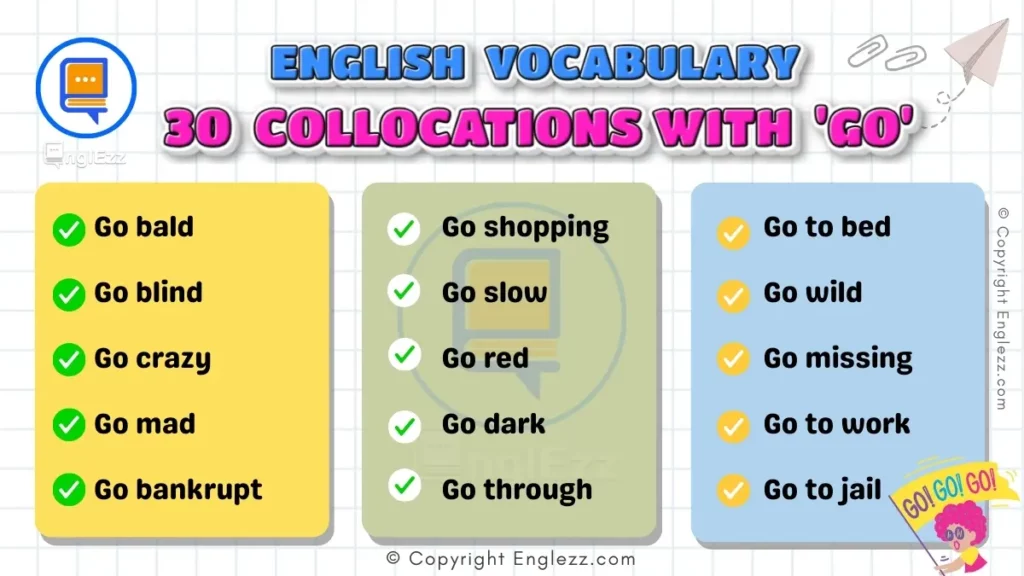
Conclusion
Mastering collocations with “go” can significantly improve your English fluency and comprehension. These 30 collocations cover a wide range of everyday situations, making your speech and writing more natural and engaging. Practice using these collocations in sentences, and you’ll notice how they seamlessly fit into your conversations.
By integrating these expressions into your vocabulary, you’ll not only sound more fluent but also more confident in your language abilities. Remember, language learning is a journey, and every new word or phrase you learn brings you one step closer to mastering English.
Keep practicing, stay curious, and most importantly, enjoy the process of expanding your linguistic horizons.





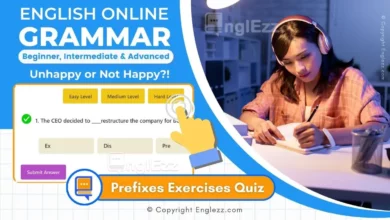
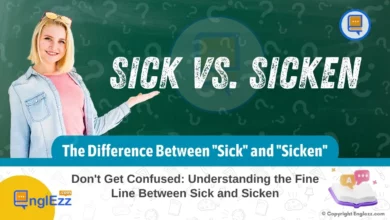
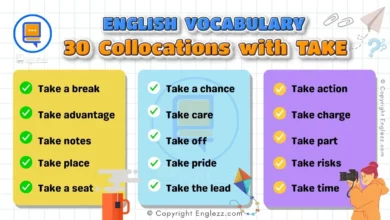
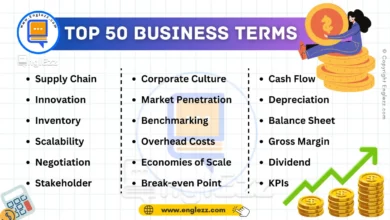
Ready to enhance your English skills? Discover 30 essential collocations with “go” in our latest post! 🗺️✨ Dive into these useful phrases and start speaking more naturally today. 👍don’t forget to follow and like EnglEzz for more language tips! 📚 Check it out at
.
https://www.englezz.com/must-know-collocations-with-go/
#englezz #LearnEnglish #EnglishTips #LanguageLearning #Collocations #EnglishVocabulary #FluentEnglish